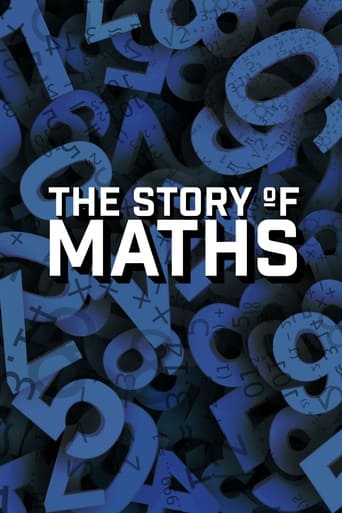

Sadly Over-hyped
... View MoreDisappointment for a huge fan!
... View MoreThis movie feels like it was made purely to piss off people who want good shows
... View MoreThere's a more than satisfactory amount of boom-boom in the movie's trim running time.
... View MoreThis is one of amazing docs I have come across. I would encourage people to watch it rather than watching stupid Hollywood movies.
... View MoreI was able to view this 4-part series on Netflix streaming. I have always been a Maths and Science guy, following that track through undergraduate and then graduate school back in the 1960s. That was before the time of electronic calculators so each of us had at least one slide rule, a Mathematical instrument that facilitated all kinds of calculations.However when I was studying Algebra and Trigonometry, or Calculus, or Differential Equations I never gave any thought to where the techniques came from. When were they developed and who developed them? I just took what we were taught and learned it. I made straight A's in all my Maths classes so I must have learned them pretty well.Here in this 4-part series British Mathematician Marcus du Sautoy wrote and starred in what might be termed the history of Mathematics. It starts thousands of years earlier in mostly unrecorded history but artifacts give clues as to when different cultures began developing number systems, and as odd as it may seem to some, a large leap forward was developing the number "0" (zero).The 4 parts of this series gradually take us through all the great minds of Mathematics over the more recent centuries, and discusses the controversies that arose periodically. Up to present times and the way Mathematics makes our modern world possible. As a Maths and Science guy I found every minute of every episode interesting. I don't know how a non-Mathematics viewer would react to the programme, I suspect it would be with a somewhat lesser degree of fascination.
... View MoreReally enjoyed the series BUT Amir Alexander's BOOK Infinitesimal starts around Tartaglia where this series seems to stop and then takes right back up AFTER the creation of the Royal Society of London. There's a huge gap in the time-line. For 300 years there was no new math? What about the worlds Holier Than Thou treatment of Euclid geometry by certain institutions and how that cultural imperative stunted the growth of humanity in as much as off setting the industrial revolution by 100 years??? The effects of our treatment of Math, our understanding of understanding, has shaped our world more closely than we may be happy to admit.
... View More